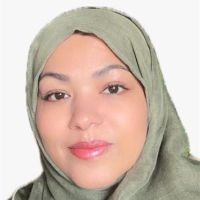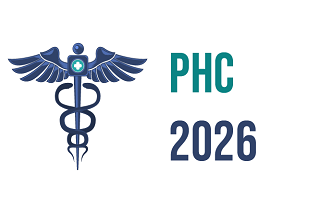5th International Conference on
Primary Health Care
November 26-27, 2026 | Dubai, UAE

Address: Al Barsha, Al Barsha 1, Dubai, United Arab Emirates
PHC 2026

Prince Sultan Military Medical City, Saudi Arabia
Abstract:
The management of radioactive waste in nuclear medicine is a critical aspect of ensuring radiation safety, environmental protection, and regulatory compliance. Nuclear medicine procedures generate various forms of radioactive waste, including solid, and liquid which primarily from diagnostic and therapeutic applications involving radionuclides such as Technetium-99m, Iodine-131, and Fluorine-18. This presentation demonstrates the categorization, handling, storage, decay management, and disposal methods for radioactive waste in clinical settings, with a focus on minimizing occupational exposure and public risks. Emphasis is placed on the implementation of the ALARA (As Low As Reasonably Achievable) principle, proper segregation and labeling of waste, use of shielded storage containers, decay-in-storage protocols for short-lived isotopes, and adherence to national and international regulatory frameworks, including those created by the International Atomic Energy Agency (IAEA). The study also pays attentions to best practices for staff training, incident response, and waste minimization strategies to encourage safety and sustainability in nuclear medicine departments. Efficient waste management not only confirm compliance but also supports the ethical and responsible use of radioactive materials in modern healthcare.
To protect staff, patients, and the public from radiation exposure in hospitals, both national and international regulations must be applied to ensure the primary goal of protecting people and the environment from the harmful effects of ionizing radiation. This is achieved by establishing safety standards, regulating the safe use of radioactive materials, and minimizing exposure.
Biography:
Hasna Al Bandar, a Saudi physicist specializing in nuclear medicine with over 20 years of experience.
I hold a Bachelor’s degree in Physics from King Saud University in Riyadh, a Diploma in Nuclear Medicine Technology (M.Sc. equivalent) from the Center for Health Studies at the Military Hospital in Riyadh, and a Master’s degree in Medical Physics from the University of Jordan in Amman.
I am licensed as a Radiation Safety Officer (RSO) by the Nuclear and Radiological Regulatory Commission and registered with the Saudi Commission for Health Specialties. I have served as a Senior Medical Physicist in the Department of Medical Physics, specializing in Nuclear Medicine at Prince Sultan Military Medical City, Riyadh.
I am an active member of the Saudi Medical Physics Society and the Middle East Committee of Medical Physics. My work includes publishing research papers, authoring book chapters, and presenting scientific posters on respected local and international platforms — all reflecting my commitment to advancing the field and improving healthcare outcomes.
